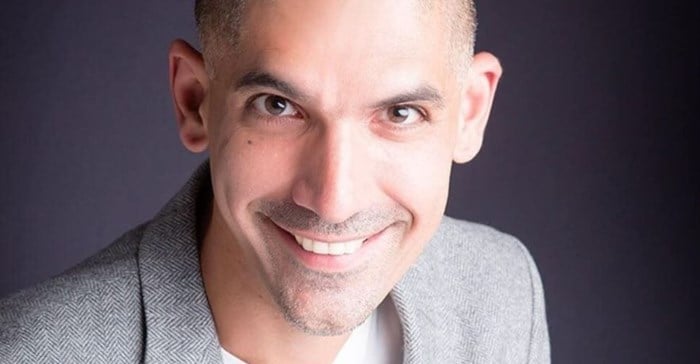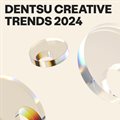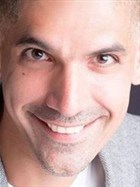If we start to discuss the “future” of mental health and performance, we immediately circle back to the notion of “why”? Why discuss the future, implying an adjustment? The need for a future roadmap alludes to the fact that our present model is somehow failing us. And it is.

Source: Supplied. Founder of Made To Thrive, Steve Stavs.
Having been in practice for 24 years now I am seeing a sad trend; cognitive decline is on the rise. I mull over the idea that when you lose your mind, you lose your life, and this is a frightening thought to have in the face of trending cognitive decline.
Dementia is a general term for cognitive decline in excess of typical aging, and what intrigues me here is the rise in dementia among younger populations.
According to research: Each year, early-onset dementia and Alzheimer’s disease affect the daily lives of a growing number of Americans under 65. As measured by the Blue Cross Blue Shield (BCBS) Health IndexSM in 2017, about 131,000 commercially insured Americans between the ages of 30 and 64 were diagnosed with either condition.
According to Dale Bredesen, Board certified in neurology and psychiatry and the author of The End of Alzheimers, the average age of the start of early onset dementia in the USA is 49. That’s so much younger than people think.
Alzheimer's disease, and early-onset dementia, is a much bigger problem than previously realised.
Why? I feel that in our world today there is still a major lack of awareness, documentation and personal preventative measures put in place. Most of us are left feeling helpless on our health journey, with the majority not even aware of the power they personally hold in terms of walking their own health journey.
How do we shift this?
Trending: mental-health decline
Think about this statement: Happy brain = Happy life.
Did you know that 59% of South African workplace employees aged between 31 and 50 experience mental-health distress and that 72% of these employees report that mental distress negatively impacts work performance?
Mental-health distress in the forms of stress, depression, anxiety and burnout account for up to 60% of work-related illness and incapacity.
Why? The system is slowly failing us. Medical care is profoundly effective as an acute model of care; surgery, cortisone, antibiotics, to name a few, all have a role to play in health and wellness, but we are slowly losing the war when it comes to chronic disease.
We often make healthcare more complicated than it needs to be. When we ensure that our basic health and wellness building blocks (such as good quality sleep, nutrition and movement) are in place, we see a massive improvement in cognitive ability as well as mental health.
The four horsemen of healthcare apocalypse:
- Cardiovascular disease,
- Metabolic diseases,
- Cancer, and
- Neurodegenerative conditions.
With your familial history and your genetic data we can plot that out and mitigate the risk as best we can. At the end of the day it’s a risk/reward analysis.
Start the journey of biohacking
“Normal” is no longer “normal”. “Normal” health is now closer to “sick” than “normal”. Our accepted norm of health and wellness has shifted and become skewed. We’re slowly getting sicker, and unconsciously compromising our sense of wellness.
Our ignorant acceptance has to stop.
Top research is showing us that we are not victims of our genes (regardless of ill-trends in our genetic lineage). Every human being is a creator of their own epigenetic destinies. The trending cognitive- and mental-health decline of the population can stop.
The need for a new solution: Medicine 3.0
Personal health accountability. This is the message for 2024.
When it comes to our health, two words come to mind: proactive and preventative. The truth of the matter is that our genes are not our destiny.
We’ve found that 10% of disease (at most) is accountable to genes. This leaves us with a weighty 90% that is in our own control, and it’s the environment that we place our genes in that has the greatest influence. We can therefore choose our epigenetic future.
The new mindset towards cognitive- and mental health and wellness needs to be one that embraces prevention and our ability to be proactive when it comes to our own personal health.
Imagine a future where we no longer are required to treat disease, but instead have gained the medical territory where disease is unable to present itself.
We have the ability to begin this revolution by using the tools and technology (currently available to us) to create personal and communal awareness.
This awareness then places ownership in our hands to act with accountability:
- The heart: What is the heart of Medicine 3.0 and biohacking? This system beats with a desire to hack through traditional medical dogma and challenges us to take personal accountability for our own life- and healthspan.
- We are all biohackers: At the core of this approach is the realisation that self-quantification is key. When we have the raw data and facts, we can all fix what appears to be “broken”. With the data and correct tools at hand, there are solutions that encompass prevention at the cost of cure. Here I resonate with what Peter Drucker states, “What can be measured can be managed”.
- The integrated health and performance dashboard: I am excited for a future where we all have access to our own individualised health performance devices (IHPDs). I see this as a centralised platform hosting all the data we need coming from multiple sources that is safe, secure and only sanctioned by the person using it.
- A data-centric and human capital algorithm: I mention this in my keynotes as an intriguing statement, but what does this mean practically? A data-centric and human-capital algorithm is an algorithm that combines personalised data with human capital.
It’s absolutely easy to use the correct tools and combine various wearables to optimise your personal data points, but who can you call on when you need community? Hope? Perspective? Someone to share your highs and lows with? Who do you really trust?
Data, combined with human capital, is vital to a continued life of thriving, and to many progressive health- and wellness workers. This looks like collaboration and working with people such as health coaches.
We’re not created to walk life in isolation or to continue our personal-health journeys separated from community. There is power and hope in walking with someone who is able to guide and help you, facilitating your mental- and health transformation.
- Cognosco-what? A programme that’s been developed to aid in halting and reversing cognitive decline is one to be integrated into our daily lifestyle.The “cognoscopy” is a term coined by Dale Bredesen that refers to an assessment that incorporates data-centric laboratory testing with cognitive testing (and an optional brain-imaging scan) that has been found to identify certain contributors to cognitive decline or risk thereof.
My recommendation when looking for such a programme is to ensure it:
- is data centric, offering bespoke self-quantification that leads to unique insights, solutions and action.
- focuses on human capital offering access to health coaches who provide personalised service and support.
- is backed by specialists in brain gain with experience in educational empowerment and biohacking tools for building, bettering and retaining brain capital.
The ultimate reset for 2024 will be one that sees us shifting from grinding to thriving.
I know we are able to unleash the power of personalised data combined with human capital to spark a wellness revolution.






































